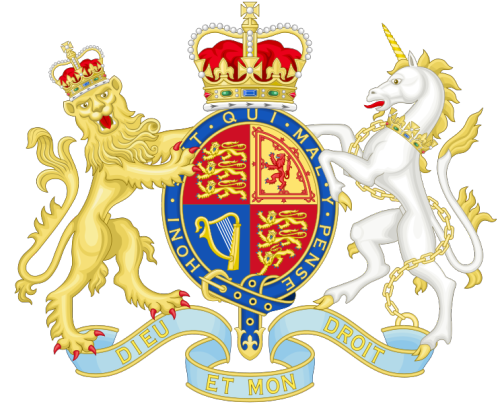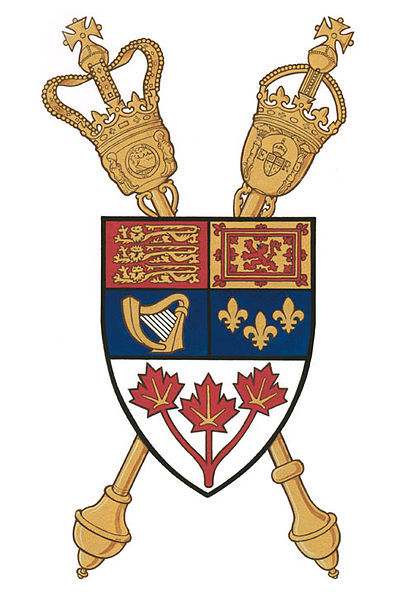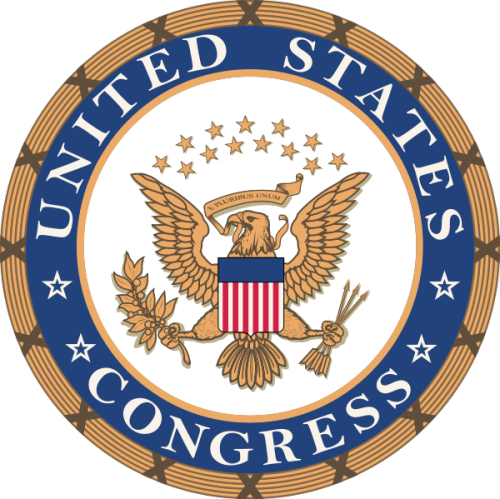Thank you, everyone, for your responses to this latest update! It was something different for me, and I'm glad that it went over so well. And who knows? It might have been good practice for whatever I plan on writing once I'm finished with
That Wacky Redhead! (At my present rate, that will be about a year from now). But I'm getting
way ahead of myself there. Thanks so much for 85,000 views, and without further delay, my responses to your thoughtful comments!
For me, the question is, are there cultural changes? That is, frex, is cigarette smoking more/less popular? (Has science caught up with perception?) Is drinking & driving more discouraged? (All compared to OTL, obviously.)
That's actually a very insightful question. As anyone who has been around a smoker knows, it's
much easier to dissuade people from starting than it is to convince people to quit. So, what influences do young people have in the early 1970s ITTL? Astronauts immediately come to mind, and they need to be in peak physical condition in order to do their jobs (in other words, there are very few smokers among their ranks). With that in mind, I'm willing to predict that smoking should be somewhat less popular ITTL (though recessionary times and retro nostalgia might bump it back up again in the mid-1970s). Drinking and driving, I imagine, would be about par (also remember that, at the time, it was explicitly
drunk driving that was discouraged - merely imbibing enough to get a buzz was generally considered acceptable).
phx1138 said:
IDK. If it's credible... A different career path that keeps a performer from being at a particular place & time, where he died OTL, can easily mean he lives ATL. Even as small a thing as a different tour promoter can save lives: had the promoter been different, Buddy Holly & Ritchie Valens would never have been aboard that B.18. (Or, at least, I
think it was a
B.18.

)
Agreed. Saving Holly and Valens is ridiculously easy, as long as the POD is set early enough (as in Monday, February 2, 1959, the day before the crash).
If you wanted to make it a real dystopia, you could have
Shatner make a cover version of Bohemian Rhapsody.
Funny you should say that - a good deal of the songs on the
Seeking Major Tom album that were performed "ironically" by Shatner IOTL would very likely be among those performed "straight" on his albums ITTL, and some forty years earlier, to boot. Don't forget that
this little gem is the Official Theme Song of
That Wacky Redhead 
Although I'm very neutral towards Jane Fonda, maybe she having some star-derailing roles and box-office bombs would a good equivalent.
Depending of how nuclear technology is viewed ITTL, "The China Syndrome" could be the start of it - although Jack Lemmon give a good perfomance of the movie.
That's an interesting line of thinking, though you may want to bear in mind that the film was released in 1979 IOTL, and may not come into existence ITTL. Whether Lemmon or Fonda would be cast is another question entirely, because casting is one of the
last major decisions of pre-production, unless it's explicitly a star vehicle.
Richter10 said:
Fair enough. If people just consider it seriously it will be enough

They will, though it will probably be up there with "Star Wars" IOTL for ridiculous but theoretically feasible (once technology catches up with theory) ideas.
Just having a timeline where the BBC is incentivized to save the past would be worth doing.
I'll be honest - saving
Doctor Who was enough of a challenge. The other old programs would be too much of a reach, I'm afraid.
That's a fair point - getting more work in the 1970s could cut both ways, allowing her to avoid some career derailing roles.
I find it hard to believe that
anything (except for aging, of course, which finally did the trick IOTL) could kill her career, considering what she came back from IOTL.
Not to mention new formats: video sales could be a big deal. Or was this deal done before that came along?
Production executives are notoriously short-sighted. This is how Desilu emerged as a major player in the 1950s, off the back of
I Love Lucy reruns; and how, in the 1970s IOTL, a maverick filmmaker was able to create one of the greatest multimedia empires ever seen off the back of merchandising revenues from some little kiddie sci-fi movie.
If you want an even earlier example of this, see
this Edison phonograph recording from
1888, where Sir Arthur Sullivan (of Gilbert and Sullivan fame) tries out this newfangled recording machine, and literally the first thing he thinks of to say is that it will pose a threat to composers and musicians like himself because they will no longer have to be booked live.
What I personally find more prescient is his fear of all the "hideous and bad music" that may be "put on record for ever". If only he knew how right he was...
Nice update, Brainbin! Great to get an international perspective.
Thank you, vultan! It was a challenging - but fun - exercise, looking at the same era from three different viewpoints.
vultan said:
Though the Republicans may gain a lot in the short term here, the success of the American Party may hobble the GOP in the long run. Nixon did a lot to bring conservative Southern Democrats into the Republican fold, from John Connally to Jesse Helms. While a lot of Southerners may dislike Humphrey, more of them vote for the AIP candidate. In the long term, after the AIP fades into irrelevance, this may create a lot of Southern states similar to West Virginia- voting Republican at the national level, but dominated by conservative Democrats on the state level. Republicans will still have room to make gains- Tennessee, South Carolina, and Florida will have a strong and growing Republican presence- but the lack of Nixon and his 1972 landslide would limit room for GOP gains in the Deep South.
On the other hand, due to their greatly
diminished focus on the South, the Republicans will find themselves working much harder to shore up their vote in more traditional regions: New England, the West, and the Mid-Atlantic states especially. And those Southern states you mention
do represent areas of potential growth.
vultan said:
Also, I'd kind of like to see how Southeast Asia, and Asia as a whole, turns out with the butterflies of a shorter [verboten] and (I assume) a weaker call by the US for detente (no Secretary of State Kissinger).
For obvious reasons, I have reservations about revisiting Southeast Asia, but I think that the late 1970s are going to be
lots of fun on the foreign policy front

vultan said:
Interesting developments- all on account of one Wacky Redhead!

I always love it when people quote my slogans back at me, so thank you for that

Also, these political developments make me wonder how one of the greatest songs of the 1970's may turn out differently. I'm talking, of course, about Lynyrd Skynyrd's "Sweet Home Alabama". Neil Young would still probably make songs in this atmosphere that they would find derogatory toward the South, so they'd still have an impetus to write something in response.
Alabama! The hotbed of the American Party. If
any state desperately needs rehabilitation in the public eye ITTL, that would be the one. Neil Young would still write "Alabama" and "Southern Man", no question about it; and, therefore, Lynyrd Skynyrd (who, going back to our earlier discussion about lifespan butterflies, will obviously
not see its membership decimated in a plane crash ITTL) would write "Sweet Home Alabama" in response.
vultan said:
The specific lines referring to George Wallace and the Watergate scandal. Obviously, since Watergate isn't happening in this world, the reference would have to be different there.
Having read the verse in particular, I'm willing to declare that it would be reworked to emphasize that they do not support Wallace's segregationist views; their ambiguity on the subject within the OTL lyric was the cause of some controversy. Perhaps a reference to federal troops forcing desegregation?
So any plans for the Roo (or Emu) and Kiwi (Australia and New Zealand)?
Welcome aboard, Fardell! Although I
did have information on Australia (the
fourth-largest economy in the Anglosphere, after all) in my draft notes, they were lost as the update took shape. Worth noting: as the federal election of 1972 was largely fought on the issue of the...
cross-archipelago quagmire IOTL, and since its premature resolution ITTL ended the drain on manpower and materiel, thus bolstering the Australian economy in the early 1970s (making it stronger, in relative terms, than any other country in the First World except for the USA); the incumbent Coalition government was thus re-elected ITTL (which bolstered Commonwealth trade talks with Wilson and Stanfield in 1973), only to suffer a major defeat in the
subsequent general election, held
after the Oil Crisis. I'm not sure whether Whitlam would remain Labor leader ITTL, after his second defeat in 1972, so I won't say who is PM. As for New Zealand? Holyoake retires in 1972 but the Nationals are
not successful in retaining power, so Norman Kirk and Labour replace them, only for Kirk to die on schedule in 1974, with Labour turfed out of office in the 1975 election. Bear in mind that these are based on my notes and are not as thoroughly researched as for the other countries, so please feel free to challenge anything if you find it implausible.
Very plausible electoral results, with just one quibble: I'd have thought that it would be right-wing Labour voters who would turn to the Liberals.
Thank you, and yes, that was an unfortunate typo which has now been corrected

NCW8 said:
Did the UK remain in
EFTA ?
Absolutely. In fact, they are working to admit Ireland to the organization as well, as a compensatory gesture for essentially sabotaging their attempt to join the EEC (and with Denmark gone, they carry more weight within the organization - though they were already the big fish anyway). Worth noting, of course, is that joining the EEC would irreparably damage trade relations with the Commonwealth (as it did IOTL), whereas the EFTA allows its members to have complete control over external trade relations.
NCW8 said:
Turning back to popular culture, with a Conservative Government in place in 1977 instead of Labour, I wonder if
Citizen Smith (which made fun out of far-left politics) still gets picked up as a TV series. If it doesn't then the writer, John Sullivan, may not go on to create
Only Fools and Horses.
That's definitely something to bear in mind when we revisit British television later in the decade.
The cultural effects in the wider UK are almost as far-reaching.
It may be considered hyperbole to say that Northern Ireland was Britain's <Verbotten> but I feel it has some truth.
At least in so far as the effects it had on the cultural psyche of the UK goes.
Thank you, Brainbin.

You're welcome, Falkenburg. And thank
you, because your reaction was naturally one of the most pivotal in response to this latest update. I wanted to get rid of Bloody Sunday for all of the obvious reasons, and Roy Mason was suggested to me as the primary agent responsible for those butterflies. One cabinet shuffle later, there we have it! We're also treated to the delicious irony of nationalists
within Northern Ireland generally being happier with the British government than
citizens of the actual Republic, which pleases my literary instincts. And, of course, violence will be decried by both sides, with direct rule seen as an undesirable - but necessary, tolerable, and
temporary - compromise. As with the overseas quagmire and Watergate, we
do lose all of the art produced in response, including - should four certain Irish kids ever decide to form a band, which they may or may not ITTL - one particular song, written in protest of sectarian violence; the most defiant performance of which can be found
here.
A most interesting update BB
Thank you, Professor

The Professor said:
I cant' see any reason why we wouldn't and indeed not being in the EEC might necessitate remaining in EFTA.
Some intriguing butterflies from this if we decide being outside what is starting to look like the USE.
Could we actually see the Euro coming into effect sooner in parallel or shortly after this possible USE.
These are all very plausible scenarios, and their likelihood will become more clear as we move ahead.
The Professor said:
Massive effects from this - a large amount of UK policing policy was in reaction to the NI escalation.
Something that bears further investigation, so thank you for that reminder.
An excellent, thorough and plausible appendix, Brainbin.
Thank you, Thande

Thande said:
Firstly, the word "caucus" is not used in British politics; we rarely talk about the concept at all, but when we do, we say "parliamentary party". I have had to talk to Drew of "Fear, Loathing and Gumbo" about this one as well: the reason I mention it is it just looks so alien to British eyes to see the word used in connexion with British politics because it is thought of as being so emblematic of American politics to us.
Always the problem with Canadian politics; most of our terminology is British, but every now and again, an American word sneaks its way in there (we also use "Dean" instead of "Father" of the House, for example, and we're likelier to say "districts" instead of "constituencies" - when we don't say "ridings"). I've removed the term from the British section of the update. I don't even care for it, myself; it's just a very handy term to differentiate between a party in general and its legislative representation, specifically.
Thande said:
Secondly, when you talk about Plaid Cymru: "Scots" is just the word used for the English dialect spoken in Scotland (which some Scots claim as a separate Germanic language, but even if one agrees with them it's certainly very close to English--but that's not the point) and should not be confused with "Scots Gaelic" which is the Scottish variety of the Celtic Gaelic language which is only spoken by a small minority.
I was intending to refer to both the Germanic tongue and the Celtic language, so I've clarified that point; which is that a Standard Scottish English name is used, instead of a Scots one or a Gaelic one (in contrast to the Welsh nationalists, and even the
Cornish regionalists, despite the fact that they're using a
dead language).
Thande said:
Other than those points, excellent work!
Well, thank you again for your help!
The next "update" will be our customary look at More To Come... so until then!



